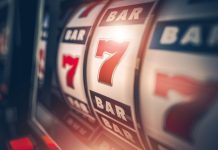The American Gaming Association has issued a more detailed summary outlining the key points contained within SCOTUS’ historic verdict on PASPA this week. It confirms that the ruling represents a sweeping victory for sports betting across the whole of the US, and not just New Jersey. Interestingly, it also hints at the tough line taken by the judges in expressing their rationale behind PASPA’s repeal.
“Six Justices joined the opinion in full, and a seventh agreed that PASPA’s ban on authorisation and licensing was unconstitutional,” said the summary. “This is a complete victory for New Jersey and for the industry: the state can implement its sports betting law immediately and can adopt additional laws (if it so chooses) licensing and regulating the practice. Other states also can adopt sports betting laws of their own.”
In its analysis, the AGA has also captured some of the more controversial tones inherent in the judgement, notably on state sovereignty. It noted: “PASPA’s ban on state authorisation on sports betting ‘unequivocally dictates what a state legislature may and may not do. … It is as if federal officers were installed in state legislative chambers and were armed with the authority to stop legislators from voting on any offending proposals. A more direct affront to state sovereignty is not easy to imagine’.”
The most consequential element of the SCOTUS opinion, according to the AGA, was that the entire law (and not just PASPA’s bans on authorizing and licensing sports betting) cannot stand. It stated: “The Court reasoned that, without PASPA’s ban on states authorising and licensing sports betting, Congress never would have enacted the remainder of the statute. In particular, the Court held that § 3702(2)’s ban on private actors engaging in sports betting was ‘meant to work together with the provisions in §3702(1) that impose similar restrictions on governmental entities’.
“Letting § 3702(2) stand on its own would ‘implement[] a perverse policy that undermines whatever policy is favoured by the people of a State. If the people of a State support the legalisation of sports gambling, federal law would make the activity illegal. But if a State outlaws sports gambling, that activity would be lawful under §3702(2)’.
“The Court also held that PASPA’s ban on licensing sports betting fails for the same reason. While another provision in PASPA (§ 3702(2)) prohibits individuals from engaging in sports betting, the challenged provision (§ 3702(1)) is addressed only to what states may or may not do. The Court ‘held that no provision of PASPA is severable from the provision directly at issue in these cases’, and thus the entire law is void. In its concluding paragraphs, the Court recognised that the legal status of sports betting ‘requires an important policy choice, but the choice is not ours to make’. The Court explained that ‘Congress can regulate sports gambling directly, but if it elects not to do so, each State is free to act on its own’.”
In conclusion, the AGA remarked: “This is a sweeping victory for New Jersey, and by extension for the gaming industry in all states. While the Court had ways to decide the case narrowly, the Court chose to strike down the entire law. The opinion makes clear that, unless Congress acts to prohibit sports betting directly (which it is unlikely to do), states are now free to decide for themselves to legalise (or not) sports betting. And because the opinion struck down the law in its entirety, states will be able to directly license and regulate operators; states will not be limited to the partial repeal and indirect regulation that New Jersey was forced to employ.”














